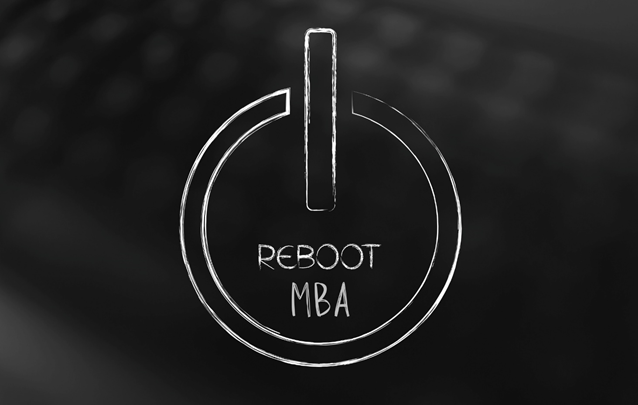2320Views

MBA, A need for Reboot!
The first wheels which were used by mankind were invented 5500 years ago in Mesopotamia since then the evolution of mankind never saw a full stop. It is said that the wheel made the foundation of human civilization. From potter’s wheel, we have progressed to carts, ships, trains, planes. From earthen vessels we progressed to various metals, alloys which lead us buildings, weapons etc. The constant development and progress were always followed by a constant change and it was said that,
“Change is the only Constant”
All aspects of our lives—technology, environment, culture, politics, religion, and education—are constantly evolving. And isn’t it time our way of teaching evolved with them? Just think about it: from typewriters to artificial intelligence, from deforestation to sustainability, from a homogenous culture to global diversity, from monarchies to democracies, and from the ancient gurukul system to today’s modern schools—everything around us has transformed.
Yes, education has made significant progress over the years. But in a world that’s changing faster than ever, shouldn’t our curriculum also be refreshed to match the pace? If we want students to truly thrive, we need to ensure our education system keeps up with the realities of the present—and prepares them for the challenges of the future.
Today, we have a diverse range of academic disciplines rooted in human history that serve as keys to a better future. However, as both education and the future remain ever-evolving, it is vital that our curriculum and subjects keep pace with global trends. In today’s world, driven by powerful economies and dominated by large-scale industries, multinational corporations, and entrepreneurial ventures, the education system carries the responsibility of nurturing future-ready business leaders, visionary entrepreneurs, and skilled managers. To ensure a stable and prosperous future, the system must periodically undergo strategic reforms that address the gap between current educational trends and the dynamic demands of the business world.
After acknowledging this need for reform, the pressing question that arises is:
“How to reboot?”
Before we bring light to the answers to the above-mentioned question, it is important to understand what the current syllabus system provides us with respect to the future and what the new reboot or updated system can provide. Currently syllabus or study methodology of MBA, PGDM or any other equivalent course are based on the theories, principles and research of decade old markets suited for that period which in time will become irrelevant in future irrespective of how correct or compatible they are with today’s world. Even though these principles or research are decades old but they still make the foundations of the course and hence are irreplaceable yet as 2 + 2 = 4 is built upon the principle of 1 + 1 = 2 similarly the new framework of the syllabus should be built on the founding principle and guide the future by combining the learnings of old principles and energy of new research, coming to the answer for the questions asked above that is to reboot any system we need to update the existing system with a new, strong, fast and a better version of itself, similarly to reboot our MBA we need to update our existing framework with a better, adaptable and flexible system which can easily be updated in future according to the requirements of that period.
As we know the coming future will be more digital than ever, more inclined towards creativity unlike today’s traditional rules and regulations, with less boundaries and toughest competitors for every positions and thus to prepare ourselves for the same regular updates and reboots are required in our syllabus which are inclined towards simulative learning, actual experience, creativity, stress management, digital revolutions instead of classroom learning but in a collective simulating environment. The need of the hour asks us to take a leap beyond the existing methodology for learning but mend ourselves and prepare for the coming trends and changes in the business as well as the corporate world. It is high time to introduce multi stream business teaching methods such as using Artificial Intelligence, Real life simulations, Actual job experiences for good amount of time, opening the realm of creativity and other software and mending them to make it useful for businesses and management.
As it is quoted by many great men,
“Business never stops growing, neither should our knowledge about business should”, Let us keep growing and walk towards a brighter and better future!
As a student of Vivekanand Business School (VBS Mumbai), I’ve experienced how the institute constantly adapts to the changing business landscape. The Vivekanand PGDM program isn’t just about classroom learning; it’s about being future-ready. With exposure to real-time projects, industry mentorship, and tools like Business Analytics and AI-based learning, we’re encouraged to think beyond textbooks. The curriculum is regularly updated to match current market demands, and the focus on innovation, creativity, and experiential learning truly sets VBS apart. Being part of one of the best PGDM colleges in Mumbai has given me the confidence and skill set to face the challenges of tomorrow’s corporate world.
– Deepesh Jain
PGDM
2020-22
Vivekanand business school

